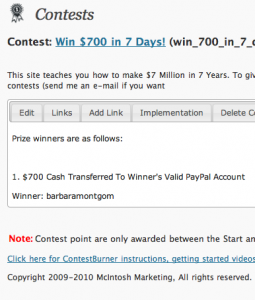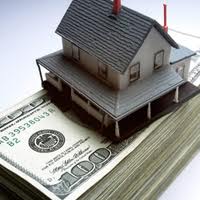 Let’s say that you do agree that real-estate is one of the best MM301 (wealth preservation) strategies … although, many of my readers would disagree …
Let’s say that you do agree that real-estate is one of the best MM301 (wealth preservation) strategies … although, many of my readers would disagree …
[AJC: I’m happy to meet all the dissenters in, say, 50 years – at a very cheap restaurant, as they won’t be able to afford much more – to discuss how they went with their TIPS, bonds, cash and stocks-based retirement strategies. Then I’ll meet Scott, Ryan and all the other RE and business-based retirees on their private golf-course in Palm Beach for a second debrief 😉 ]
… but, what type of RE would fit the bill?
After all, many of my readers, Evan included, have had mixed experiences with RE:
I have watched my dad deal with C R A P for years. He owns 2 properties:
1) CASH COW – 2 family residential unit income exceeds mortgage payments. They always pay on time and there mostly are no problems
2) 2 family unit with a bar attached. I have listened to him say for YEARS, that if the bar paid its rent things would be different. I feel like the stress associated with this property is going to kill him eventually, and that is the commercial part.
In NY it takes 9 to 18 months to get someone out, so even if you try to evict you are looking at legal and time costs that could literally eat 6 months profit.
As I said to Evan:
That’s why we keep TWO YEARS’ buffer 😉
But, we all have a Reticular Activating System (RAS) that attracts us to whatever it is that has caught our attention … for example, have you ever played the Punch Buggy / Slug Bug game with your friends and / or kids?
If not, it’s a bundle of fun – and, pain. Actually, mainly pain 🙁
It works like this: who ever sees a VW ‘bug’ first calls out “Punch Buggy [insert color of choice: yellow, green, red, etc.] !!” and gets to whack the other person on the arm … as hard as they like [AJC: usually me. ouch!] …
It’s amazing how many VW Beetles there are on the roads, these days!
 We used to play a similar game – many, many years ago – when I was on the school bus: we used to look for Chrysler Chargers, and whomever saw one first would yell out “Hey, Charger!” and hold up their hand with a Richard Nixonesque V-For-Victory sign.
We used to play a similar game – many, many years ago – when I was on the school bus: we used to look for Chrysler Chargers, and whomever saw one first would yell out “Hey, Charger!” and hold up their hand with a Richard Nixonesque V-For-Victory sign.
The winner for the day was the one who scored the most ‘victories’ …
It’s amazing how many Chrysler Chargers there were on the roads, in those days 🙂
Of course, what’s happening is that our RAS is simply filtering IN Chargers (or VW Beeltes) and filtering OUT other types of vehicles, making it SEEM as though Chargers / Beetles are everywhere … of course, there are no more / less than there were before we started looking out for them.
Similarly, with RE – or other – investments:
Our view tends towards our first direct – or, even indirect – experiences; which helps to explain why my generation is more conservative (we went through some down cycles in the late 80’s and early 90’s) and younger folk were more bullish, having had 15 to 20 good years … until resetting their RAS’ in the current cycle.
Similarly, Evan’s views may be colored by his Dad’s experiences albeit mixed.
But, Evan’s Dad could have avoided many of his RE problems by buying well … now, for MM301, buying well is NOT the same as buying well for MM201:
While we are still building towards our Number, we need to buy RE that will appreciate strongly, with rents just covering cashflow (of course, we wouldn’t say “no” to more!) …
… but, when we have reached our Number, we need to generate INCOME, so buying well really means that we need to:
Buy to protect our future income / rental stream
As I have shown you, it’s easy to get a positive cashflow from RE; just pay cash!
And, live happily from 75% of the rents (less taxes), knowing that the other 25% will cover all of your ‘normal’ costs (management fees, vacancies, repairs and maintenance, etc.), and will keep up with inflation.
It’s the last part that is key: since we are never selling these properties [AJC: lucky kids!], we don’t really care how much/little the RE itself appreciates, we just care how much the rents appreciate, and our benchmark for this is:
The rents must appreciate at least as much as inflation
That is through both UP and DOWN markets …
… so, I would keep away from bars and other retail EXCEPT for counter-cycle retailers such as dollar stores, groceries / food stores (food staples only), and – of course – Walmart and Walgreens [AJC: if I could get my hands on the freehold!].
Remember, we’re not looking for extraordinary capital growth (any more), but protection in down-cycles.
[AJC: oh, and if you were going to buy stocks (again, for retirement capital protection and dividends); these types of retailers and food businesses would be great ‘protection stocks’ to own, as well]
And, moving away from retail, I would also happily buy small offices, say, housing a number of separate professionals (e.g. doctors, attorneys, etc.), as these professions are required in all markets and my risks are well spread.
But, I would avoid large offices – or industrial showrooms and warehouses – housing SME’s, as these are prime candidates for simply shutting shop in a down cycle, and I may only have one tenant per property (even though buying 6 or 7 of these would certainly help to insulate the ‘shock’)
And, you might be surprised to find that I am not all that excited about residential (even multi-family) for MM301, simply because the rental returns are usually not that great (but, they can make a fantastic MM201 strategy).
Remember, RE isn’t the only MM301 Wealth Protection strategy that you can base your retirement (or, life after work) around, it’s just that I am struggling to find another one that has both income and capital that can keep up with inflation, fairly consistently, through at least the 30 to 50 years that I still plan to be around …
… can you?
 Here’s a commonly asked question:
Here’s a commonly asked question:









